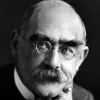Some years ago, I was lucky enough invited to a gathering of great and good people: artists and scientists, writers and discoverers of things. And I felt that at any moment they would realise that I didn’t qualify to be there, among these people who had really done things.
On my second or third night there, I was standing at the back of the hall, while a musical entertainment happened, and I started talking to a very nice, polite, elderly gentleman about several things, including our shared first name. And then he pointed to the hall of people, and said words to the effect of, “I just look at all these people, and I think, what the heck am I doing here? They’ve made amazing things. I just went where I was sent.”
And I said, “Yes. But you were the first man on the moon. I think that counts for something.”
And I felt a bit better. Because if Neil Armstrong felt like an imposter, maybe everyone did. Maybe there weren’t any grown-ups, only people who had worked hard and also got lucky and were slightly out of their depth, all of us doing the best job we could, which is all we can really hope for.
Quotations about:
pretension
Note not all quotations have been tagged, so Search may find additional quotes on this topic.
“Classic.” A book which people praise and don’t read.
Mark Twain (1835-1910) American writer [pseud. of Samuel Clemens]
Following the Equator, ch. 25, epigraph (1897)
(Source)
Detective inspector John “Call me Jack, everyone does” Robinson did not like theatres. Bit of a night out at the variety or even the Tiv was fair enough, but ever since a high-minded relative had forced him to sit through an Ibsen festival at an impressionable age, theatres had always been synonymous with what he called ‘high art’, a portmanteau term for everything self-indulgent, terminally tedious and incomprehensible in the world of culture.
“What’s the play about?”
“Nobody seems to know.”
“What do the actors say it’s about?”
“They don’t know,” Susan said. She was as close to embarrassed as she gets.
“The actors don’t know what it’s about?”
“No.”
“How about the Director?”
“Lou says that a play is not required to be about anything.”
“And it runs how long?”
“Four and a half hours with an intermission.” Susan smiled encouragingly. “It’s very controversial,” she said.
“Excellent,” I said. “Maybe a fight will break out.”
He wrapped himself in quotations — as a beggar would enfold himself in the purple of Emperors.
Rudyard Kipling (1865-1936) English writer
Many Inventions, “The Finest Story in the World” (1893)
(Source)
So it is no good our mounting on stilts, for even on stilts we have to walk with our own legs; and upon the most exalted throne in the world it is still our own bottom that we sit on.
[Si, avons nous beau monter sur des échasses, car sur des échasses encore faut-il marcher de nos jambes. Et au plus élevé trône du monde, si ne sommes assis que sur notre cul.]
Michel de Montaigne (1533-1592) French essayist
Essay (1587), “Of Experience [De l’Experience], Essays, Book 3, ch. 13 (3.13) (1595) [tr. Cohen (1958)]
(Source)
This essay first appeared in the 2nd (1588) edition, but this passage was added for the 1595 edition.
(Source (French)). Alternate translations:Wee may long enough get upon stilts, for, be we upon them, yet must we goe with our owne legges. And sit we upon the highest throne of the World, yet fit we upon our owne taile.
[tr. Florio (1603)]'Tis to much purpose to go upon Stilts, for when upon Stilts, we must yet walk upon our Legs: And when seated upon the most elevated Throne in the World, we are but seated upon our Breech.
[tr. Cotton (1686)]’Tis to much purpose to go upon stilts, for, when upon stilts, we must yet walk with our legs; and, when seated upon the most elevated throne in the world, we are but seated upon our breech.
[tr. Cotton/Hazlitt (1877)]Much good does it do us to mount on stilts, for on stilts we must still walk with our legs; and on the loftiest throne in the world we sit only on our buttocks.
[tr. Ives (1925)]So it is no use to mount upon stilts, for even on stilts we must walk with our own legs. And even on the most exalted throne in the world we are only sitting on our own bottom.
[tr. Zeitlin (1934)]Yet there is no use our mounting on stilts, for on stilts we must still walk on our own legs. And on the loftiest throne in the world we are still sitting only on our own rump.
[tr. Frame (1943)]A fine thing to get up on stilts, for even on stilts we must ever walk on our legs! And upon the highest throne in the world, we are seated, still, upon our arses.
[tr. Screech (1987)]No matter that we may mount on stilts, we still must walk on our own legs. And on the highest throne in the world, we still sit only on our own bottom.
[Bartlett's]







